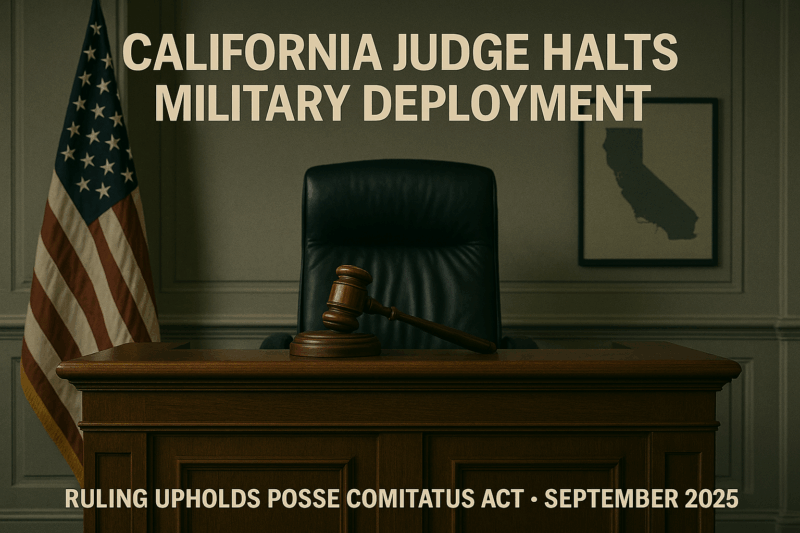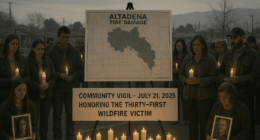A California judge ruling has halted President Donald Trump’s federal military deployment in Los Angeles, citing violations of the Posse Comitatus Act. On September 2, 2025, U.S. District Judge Charles Breyer ruled that deploying 4,000 National Guard members and 700 U.S. Marines to assist with immigration and drug raids overstepped federal law. This decision highlights a growing state-federal conflict, as California challenges the Trump administration’s use of troops for domestic law enforcement, raising questions about executive power and the 2025 election impact.
Human Toll
The federal military deployment in Los Angeles has sparked concerns among residents, with armed troops patrolling urban areas since June 2025. Governor Gavin Newsom criticized the move as an attempt to intimidate Californians, particularly with deployments extended through the November 2025 elections. The presence of soldiers, often in protective armor, has heightened tensions, potentially deterring voters and straining community trust. While no major violent incidents have been reported, the psychological impact of a Trump National Guard presence underscores fears of militarized overreach in civilian spaces.
Facts
The Posse Comitatus Act, enacted in 1878, prohibits federal troops from performing domestic law enforcement tasks like arrests, searches, or crowd control without congressional approval. Judge Breyer’s 52-page ruling found that the Trump administration’s use of federalized National Guard and Marines for tasks like traffic blockades and crowd control constituted a Posse Comitatus violation. Despite claims that troops were protecting federal agents, Breyer rejected this as a pretext, noting no rebellion or emergency justified the deployment. The injunction, paused until September 12, 2025, restricts such actions in California but allows appeals.
Climate Context
This California judge ruling reflects a broader state-federal conflict, intensified by political polarization ahead of the 2025 election. California’s progressive policies clash with Trump’s law-and-order agenda, echoing historical tensions during Reconstruction when the Posse Comitatus Act was established to limit military overreach. The ruling may influence public sentiment, as voters weigh federal authority against state sovereignty, especially with Trump hinting at similar deployments in cities like Chicago and Baltimore.
What Lies Ahead
The Trump administration is likely to appeal, potentially escalating the case to higher courts. California seeks to reclaim control of its National Guard, arguing federalization undermines state authority and election integrity. Legal experts suggest this ruling could set a precedent for other states challenging Trump National Guard deployments. The Posse Comitatus violation debate may prompt Congress to clarify military roles, shaping future federal-state dynamics.
Conclusion
The California judge ruling against federal military deployment reaffirms the Posse Comitatus Act’s role in safeguarding civilian governance. By addressing the Posse Comitatus violation, this decision curbs executive overreach and strengthens state-federal balance. As the 2025 election looms, the outcome of this state-federal conflict could redefine how military power is wielded, ensuring legal boundaries protect democracy.






